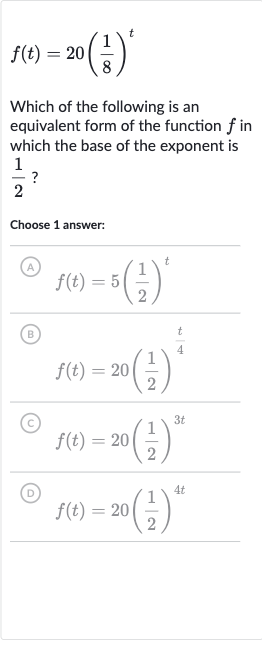Full solution
Q. Which of the following is an equivalent form of the function in which the base of the exponent is ?Choose answer:(A) (B) (C) (D)
- Understand the problem: Understand the problem.We need to express the function with a base of instead of .
- Express as power of: Express as a power of . Since is equal to , we can rewrite the function using this relationship.
- Substitute in the function: Substitute with in the function.
- Apply power rule: Apply the power of a power rule.When you raise a power to a power, you multiply the exponents. So, becomes .f(t) = \left(\frac{}{}^{t}\right)
- Compare with answer choices: Compare the resulting function with the answer choices. The function we have now, , matches one of the given answer choices.
More problems from Multiplication with rational exponents
QuestionGet tutor help
QuestionGet tutor help
QuestionGet tutor help
QuestionGet tutor help
QuestionGet tutor help

